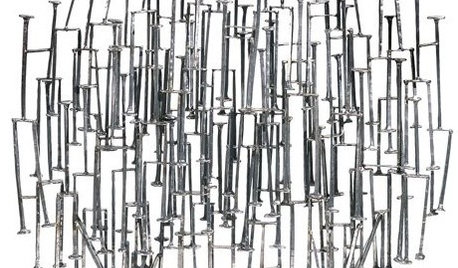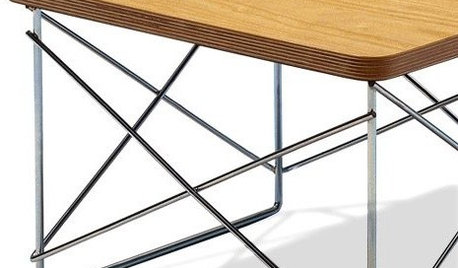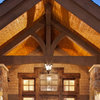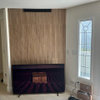wire size
cappo11
11 years ago
Related Stories

ACCESSORIESHow to Hide Those Messy Wires
Untangle Yourself From Ugly Electrical Cords With a Few Tricks and Accessories
Full Story
SHOP HOUZZShop Houzz: Down to the Wire
Versatile wire furniture and accents mesh well with all styles, from traditional to modern
Full Story0

DECORATING GUIDESInspiring Materials: Metal Wire
Add the Open Look of Wire to Your Lighting, Furnishings and Decor
Full Story
MORE ROOMSHome Tech: Getting Rid of Wires Without Sacrificing Sound
Wireless home technology still isn't perfect, but new products are giving audiophiles choices
Full Story
DIY PROJECTSHide All Those Wires in a DIY Charging Station
Keep your gadgets handy and charged with a flexible storage board you can design yourself
Full Story
PRODUCT PICKSGuest Picks: Wonderful Wire
Use the strength and versatility of modern and vintage wirework to bring creativity to your home
Full Story
LIGHTING10 Ways With Wall Lights That Don’t Need to Be Wired In
Learn how to add illumination to your home without carving into the walls
Full Story
FURNITUREModern Icons: The Eames Wire Base Table
Simple modern table is light and versatile enough for every room in the house
Full Story
DECORATING GUIDESFlea Market Finds: Wire Baskets
Turn Rustic-Industrial Pieces Into Chandelier, Pendant or Mobile Centerpiece
Full Story
DIY PROJECTSHide Cords in Style With DIY Graphic Panels
Keep wires under wraps for a neater-looking home office or media center, with wall panels you make to your exact taste
Full StoryMore Discussions










bus_driver
brickeyee
Related Professionals
Albany General Contractors · Country Club Hills General Contractors · Fairview General Contractors · Galveston General Contractors · Hutchinson General Contractors · Klamath Falls General Contractors · Sterling General Contractors · Downey Solar Energy Systems · Tarpon Springs Solar Energy Systems · Alum Rock Solar Energy Systems · Easton Solar Energy Systems · Grand Rapids Home Automation & Home Media · Newtown Square Home Automation & Home Media · Ponte Vedra Beach Home Automation & Home Media · St. Johns Home Automation & Home Mediacappo11Original Author
terribletom
econo
terribletom
brickeyee
terribletom
btharmy
hexus
bus_driver
brickeyee
bus_driver
brickeyee
hexus
cappo11Original Author
saltcedar
brickeyee
hexus
kurto
lbpod
kalining
cappo11Original Author
bus_driver
alan_s_thefirst
alan_s_thefirst
cappo11Original Author
bus_driver